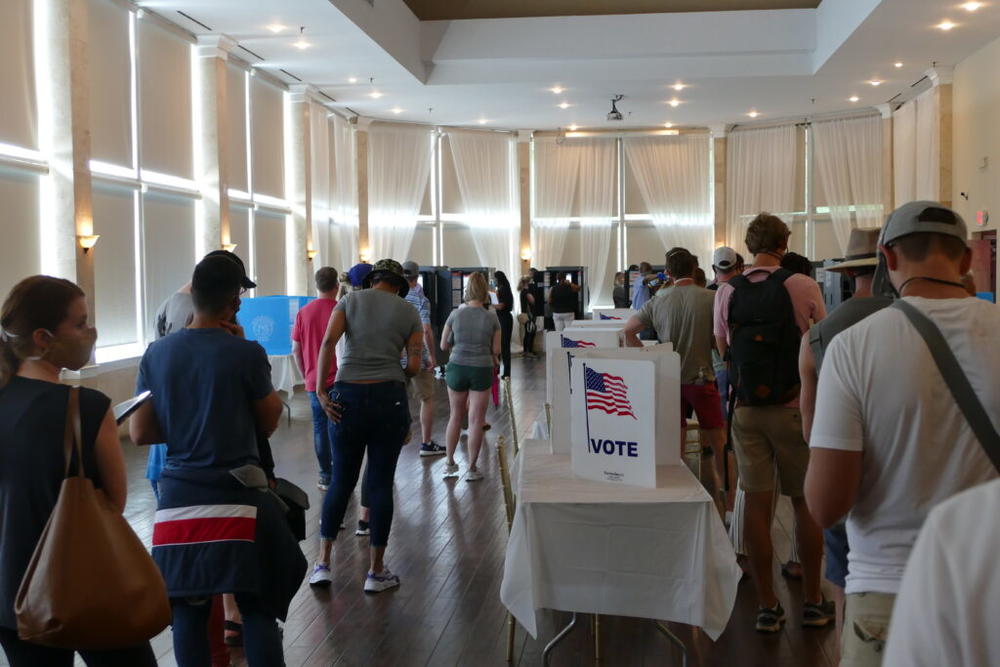
Caption
Georgia’s time at the center of national politics is likely to continue this year with a slate of Trump-endorsed candidates in the GOP primary and U.S. Sen. Raphael Warnock and Stacey Abrams on the ballot.
Credit: John McCosh/Georgia Recorder








